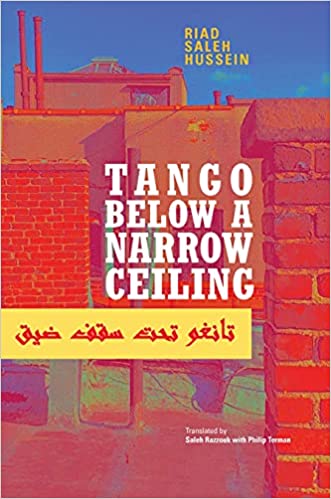Deborah Sarbin
An apocalyptic poem might not be everyone’s cup of tea, but when it’s as wise and comforting as U.S. Poet Laureate Joy Harjo’s “Perhaps the World ends here,” you may reconsider. She had me at the kitchen table.
A kitchen table. My first kitchen table, growing up in the mid-1970s (when Harjo published her first volume), was classic mid-century Formica, rounded edges cornered with chrome bars, a table top of grey, white, and yellow mottled design.
Then an updated table–dark wood, also with rounded corners.
No matter its form, the table marked the spatial and spiritual center of our home.
Dad didn’t eat dinner every day because of his work shifts, and we didn’t formally breakfast, but my mother and I would review the day at dinner, I’d chatter about what I’d read, she’d share stories of her family and childhood. I learned where I was from and where I might go right there, at the kitchen table.
We didn’t have any desks in the house, so the table served that purpose, too. I’d be quizzed on spelling words there, my dad would write out the checks for bills, all arranged in a repurposed Maxwell House Coffee can. A dining room table is different: distant, colder—removed from the heat and work of the kitchen.
Harjo’s poem unfurls in 11 deliciously long lines. The speculative title gives way to two definitive statements:
The world begins at a kitchen table. No matter what, we must eat to live.
It’s no surprise, then, that I was drawn to “Perhaps the World Ends Here” when I first read it, given that opening. The poet visited Clarion’s campus in 1995, her book tour for The Woman Who Fell from the Sky. She not only read, but played the saxophone to punctuate her readings; the volume contained a bonus cassette tape of her band. Besides her nine books of poetry and two memoirs, Harjo has recorded seven albums.
The gifts of earth are brought and prepared, set on the table. So it has been since creation, and it will go on.
We chase chickens or dogs away from it. Babies teethe at the corners. They scrape their knees under it.
Family life appears throughout Harjo’s oeuvre, as does the easy complement of the symbolic and spiritual. She explores many levels of existence concurrently.
It is here that children are given instructions on what it means to be human. We make men at it, we make women.
At this table we gossip, recall enemies and the ghosts of lovers.
When I took a cooking course in Italy, we learned the adage, “a tavola non s’invecchia”—at the table, no one grows old. I recall this magical, expansive sentiment when I read these lines.
As the poem progresses, the homey celebration of table starts slipping toward the apocalyptic, bridged by marvelous, apt figurative language.
Our dreams drink coffee with us as they put their arms around our children. They laugh with us at our poor falling-down selves and as we put ourselves back together once again at the table.
I can’t imagine a better description of our frailties and failings than ‘poor falling down selves,” equal parts self-aware and generous. Can’t you feel the physicality of those friendly, personified dreams?
This table has been a house in the rain, an umbrella in the sun.
This table is “Everytable,” an everyday object overloaded with the stuff of life and lives, as specifically historical as it is mythic.
Wars have begun and ended at this table. It is a place to hide in the shadow of terror. A place to celebrate the terrible victory.
We have given birth on this table, and have prepared our parents for burial here.
At this table we sing with joy, with sorrow. We pray of suffering and remorse. We give thanks.
Perhaps the world will end at the kitchen table, while we are laughing and crying, eating of the last sweet bite.
The last sweet bite: I wonder if she added the adjective ‘sweet’ in revising. It perfectly elicits life’s pleasure. The line’s open ‘a’ hangs, as do all those long vowels, letting us savor the words. So satisfactory an end to the poem, even to the world.
I’ll take the poet’s own advice and “praise the song, and praise the singer” (“Praise the Rain”). Recently re-appointed for a third term as Laureate, the Muscogee Nation poet turns 70 this month. Harjo’s long career has allowed her to become a mentor to younger Native poets, a role she publicly embraces. And she gives so graciously of her time; I’ve had the pleasure of hearing her read in numerous public virtual gatherings and festivals in this pandemic year. Her latest book, Living Nation, Living Words: An Anthology of First Peoples Poetry, is published this month by W.W. Norton.
This link features Harjo reading the poem (just click on the arrow beside the title): https://www.poetryfoundation.org/poems/49622/perhaps-the-world-ends-here
This link takes you to the poet’s latest project: Living Nations, Living Words, an interactive map featuring Native writers: https://www.loc.gov/ghe/cascade/index.html?appid=be31c5cfc7614d6680e6fa47be888dc3




